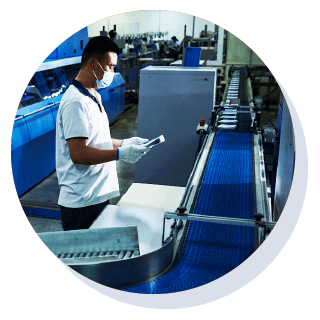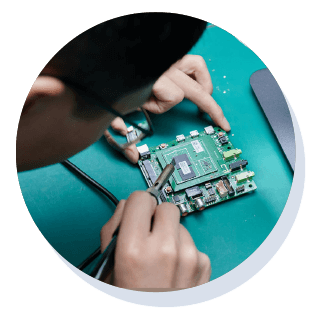SUSTAINABILITY AS A SOLUTION
EMBARKING ON A GREEN
VOYAGE
Penguin International is making waves as a
provider of sustainable maritime solutions.
This renowned shipbuilder is betting big on the green wave sweeping over the maritime industry, one that contributes significantly to carbon emissions. The Singapore-listed company’s bold new direction is giving it a critical edge in the transition to a net zero world.

SCROLL
Managing Director James Tham (pictured), a journalist-turned-businessman, reveals that the company is playing the long game in its wholehearted embrace of sustainability. While he says that business will have to endure some short-term pain by going green, this pivot will help Penguin distinguish itself from the competition for the foreseeable future.
Getting on board with ‘baby steps’
The shipbuilder’s first steps on its green journey were prompted by the Singapore Exchange’s updated regulations for listed companies.

SCROLL
These regulations required the firm to produce a sustainability report in
2017, Mr Tham says, leading to “baby steps” in green technology. A year
later, Penguin retrofitted one of its ferries with solar panels. It later
built Singapore’s first hybrid-electric fast launch. Soon, customers like
Shell and the Maritime and Port Authority of Singapore (MPA) asked to tap
its expertise in building sustainable high-speed vessels.
Since then, Penguin has delivered to MPA Singapore’s first hybrid-electric
patrol boat and is currently building for Shell Singapore’s first pure electric
ferries and rapid shore chargers that it would own and operate.
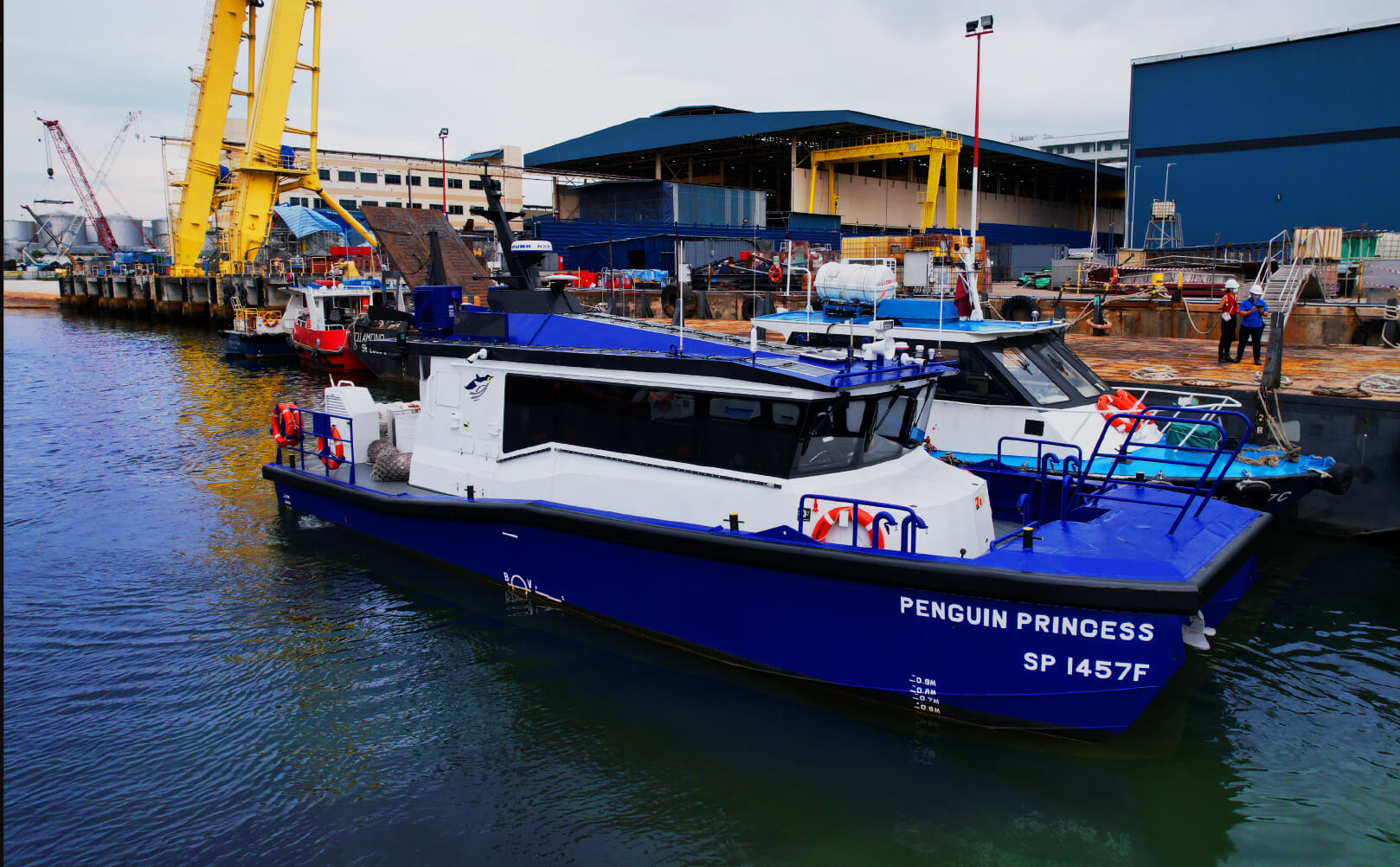

+1.5 degrees Celsius > The likely global temperature increase by 2100 if urgent action is not taken, leaving Singapore vulnerable:
Source: Centre for Climate Research Singapore






Higher daily mean temperature of 1.4 to 4.6 degrees Celsius

More intense and frequent heavy rainfall events

Mean sea level rise of up to 1 metre
In turn, our water supply, biodiversity and public health could be impacted.
Source: Centre for Climate Research Singapore


Companies must embrace sustainability to remain competitive. We will support companies as they accelerate their sustainability efforts and capture opportunities in the green economy.
- Tang Zhi Hui
Director (Climate Change & Sustainability), MTI

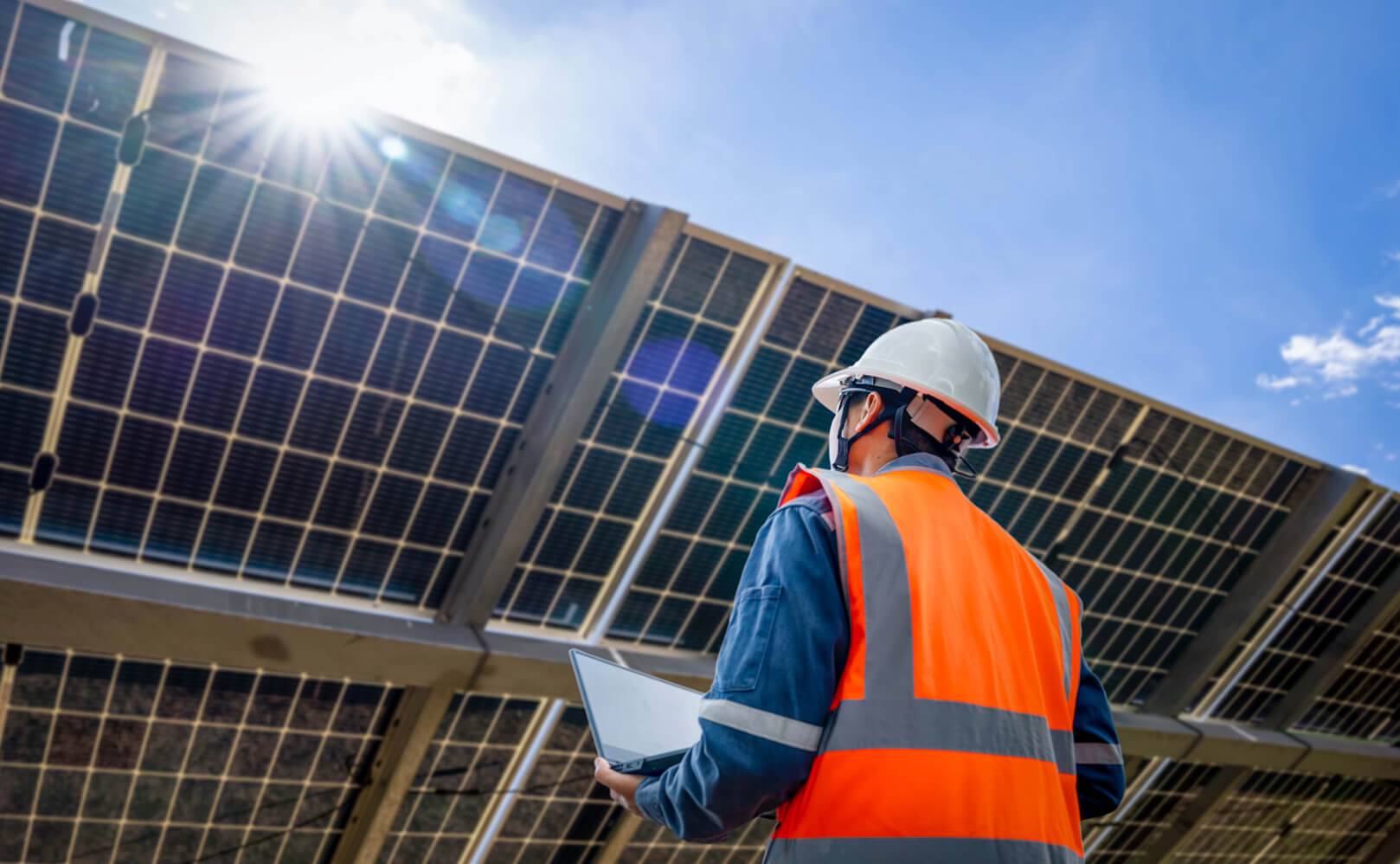
Venturing into new waters
More ambitious sustainability-related projects lie ahead for the company.

SCROLL
Penguin has signed a Memorandum of Understanding with Sembcorp Marine and Shell to trial the use of hydrogen fuel cells
for ships in Singapore — a potentially zero-emissions technology to help the industry achieve net zero emissions by 2050.
This emissions target signals the country’s
commitment
to the United Nations’ 2030 Agenda for Sustainable Development, the Paris Agreement and the International Maritime
Organization’s Initial Strategy to ensure greener shipping globally. Mr Tham believes the push for a cleaner
industry will drive demand for Penguin’s solutions.
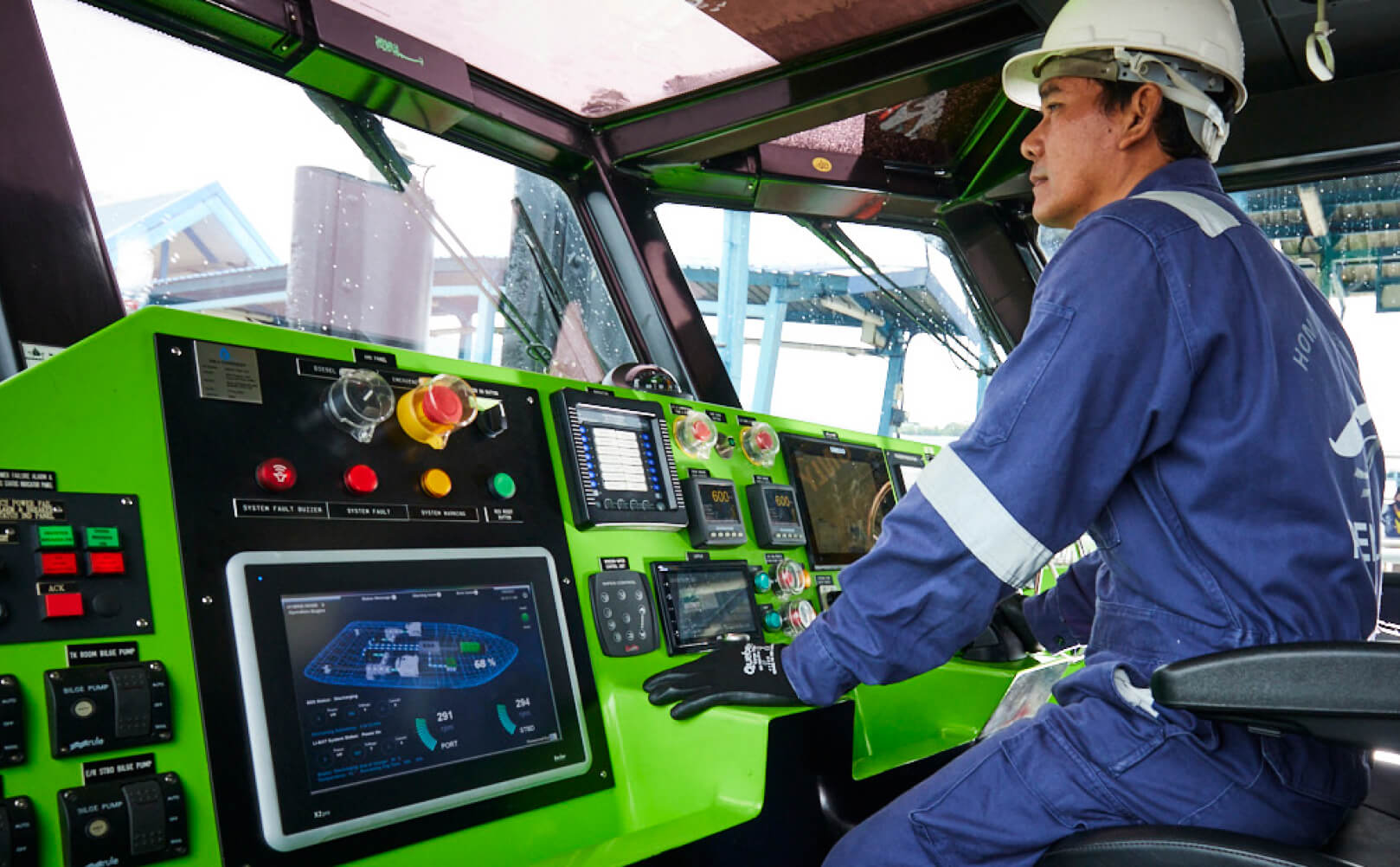
Another key to unlocking the company’s potential is the availability of financing for green maritime projects. It recently
secured a green loan from a local bank — co-guaranteed by Enterprise Singapore — to help finance its green project.
A third driver will be the public’s willingness to accept sustainable solutions that might cost more, he says. “The
public needs to be part of the national conversation where they expect electric ferries as much as they expect electric buses,
essentially saying, ‘we don’t want diesel ferries when we travel’.”
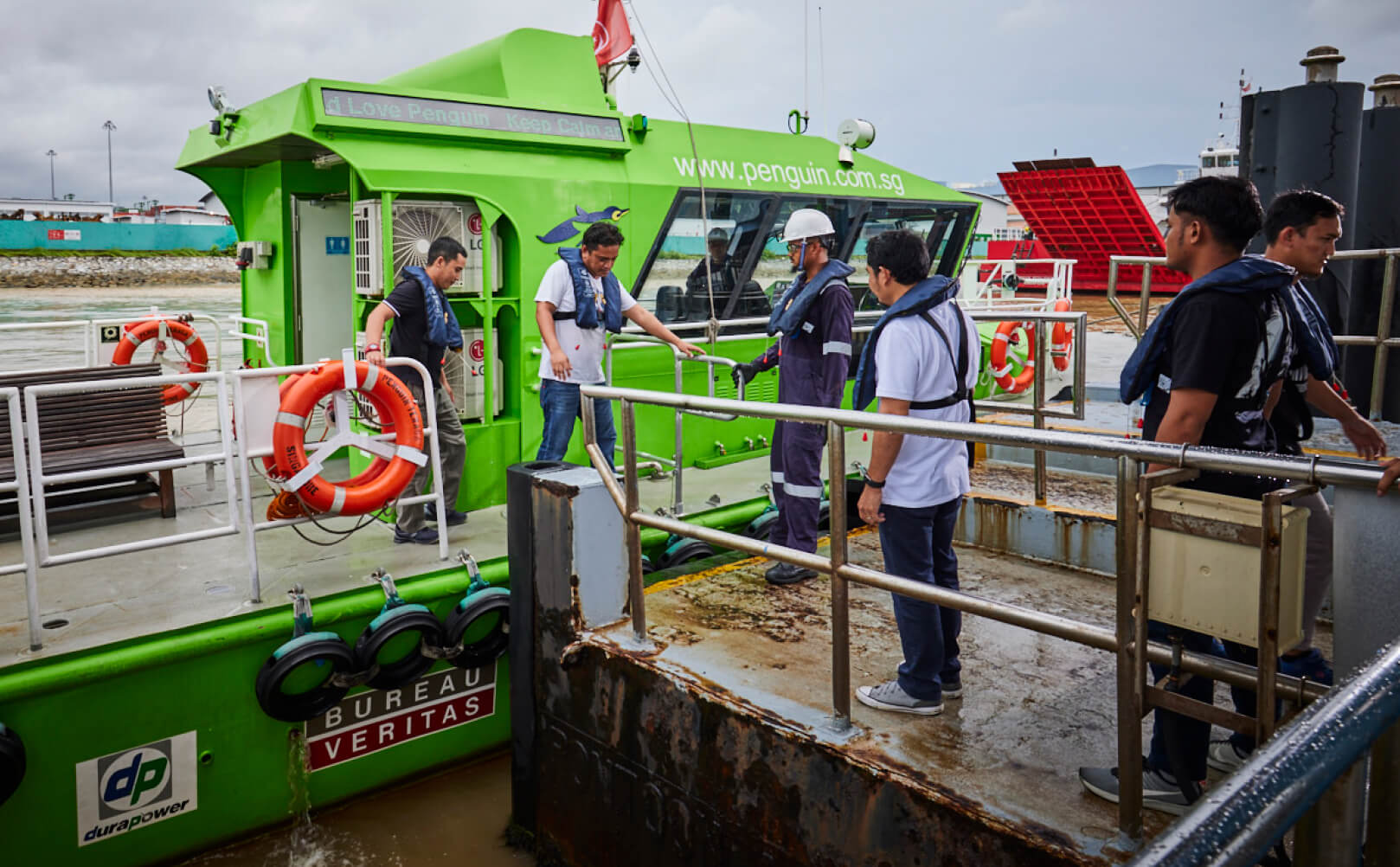

To achieve Singapore’s net zero emissions ambition by 2050, the carbon tax for businesses will be raised from S$5 a tonne to:



S$25
a tonne in 2024 and 2025,

S$45
a tonne in 2026 and 2027, and

S$50–S$80
a tonne by 2030.
Carbon tax-liable businesses can use carbon credits to offset up to 5 per cent of taxable emissions from 2024.
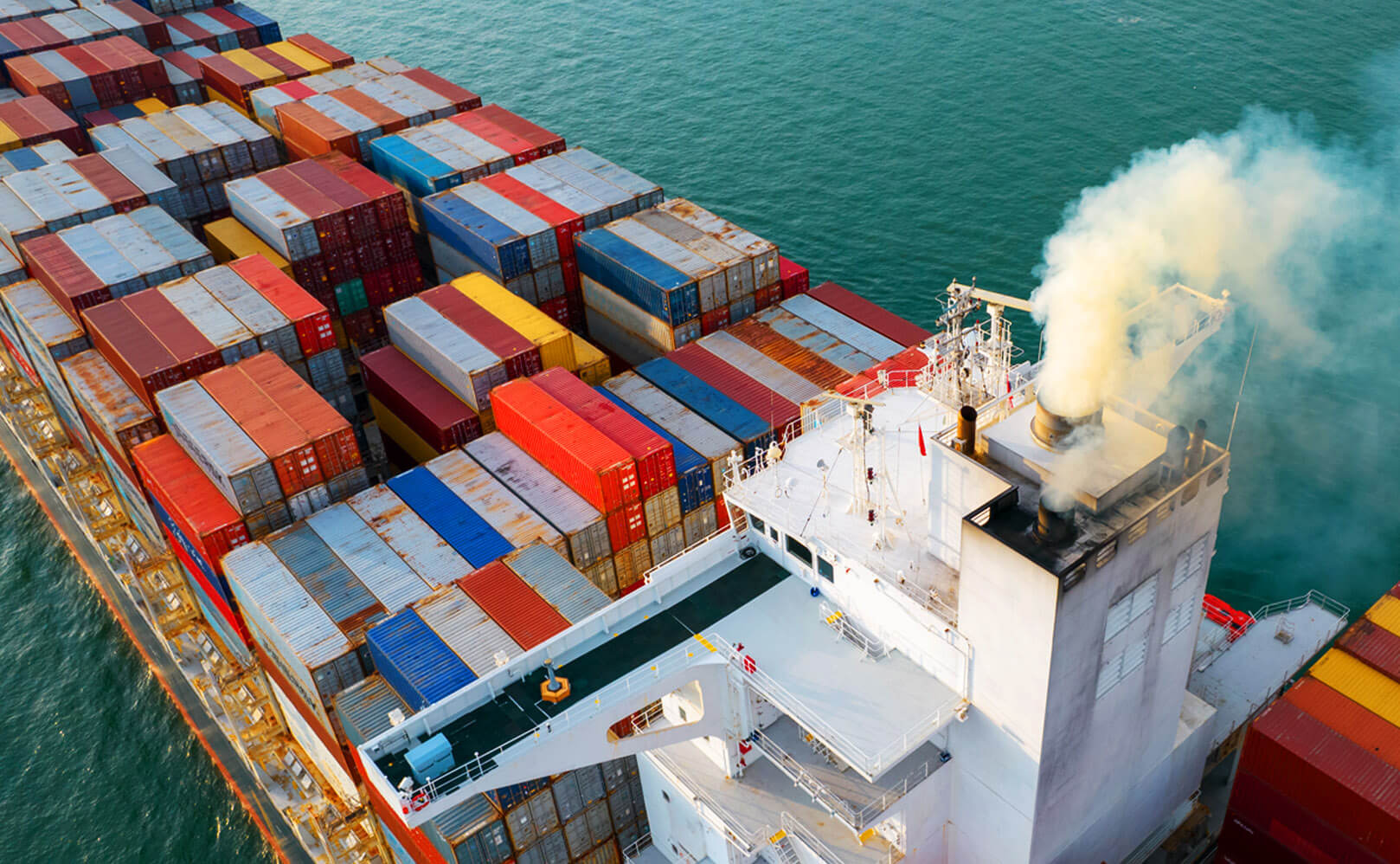
BUILDING SUSTAINABILITY CAPABILITIES
As we transition to a low-carbon future with new green opportunities, local companies can tap on Enterprise Singapore support, such as the Enterprise Sustainability Programme (ESP).
THE ESP COVERS:

-
Sustainability courses
to build awareness and knowledge of sustainability trends, risks and opportunities.

-
Sustainability capability and product development projects
to develop new sustainable products and solutions, or plans to be more sustainable, with support via the Enterprise Development Grant.

-
Sectoral initiatives
run in partnership with trade associations and chambers, and include sustainability roadmaps and training courses.

-
Ecosystem initiatives
and sustainability-related services provided by industry partners in areas such as training, certification and financing.
Planning for the new normal
Penguin’s early moves in sustainability put it in a good position to capture a larger share of the market in the future when green vessels become the norm.

SCROLL
"Going green in the short term is not profitable,
so it has to be part of a bigger strategy. The
benefit we reap by being part of the solution
now is we are seen as a progressive, can-do
company," explains Mr Tham.
Looking ahead, Penguin has started exploring newer green technologies
that can be applied to marine and offshore. These include the use of
methanol as a maritime fuel, and new forms of ship design to make vessels
more energy efficient. "People are embracing a new normal. You do not want
to be left in the cold when the whole industry has moved on," he says.


To build a sustainable Maritime Singapore, all domestic harbour craft will >

By 2030:

OPERATE ON LOW-CARBON ENERGY SOLUTIONS.

REDUCE ABSOLUTE EMISSIONS BY 15% FROM 2021 LEVELS.
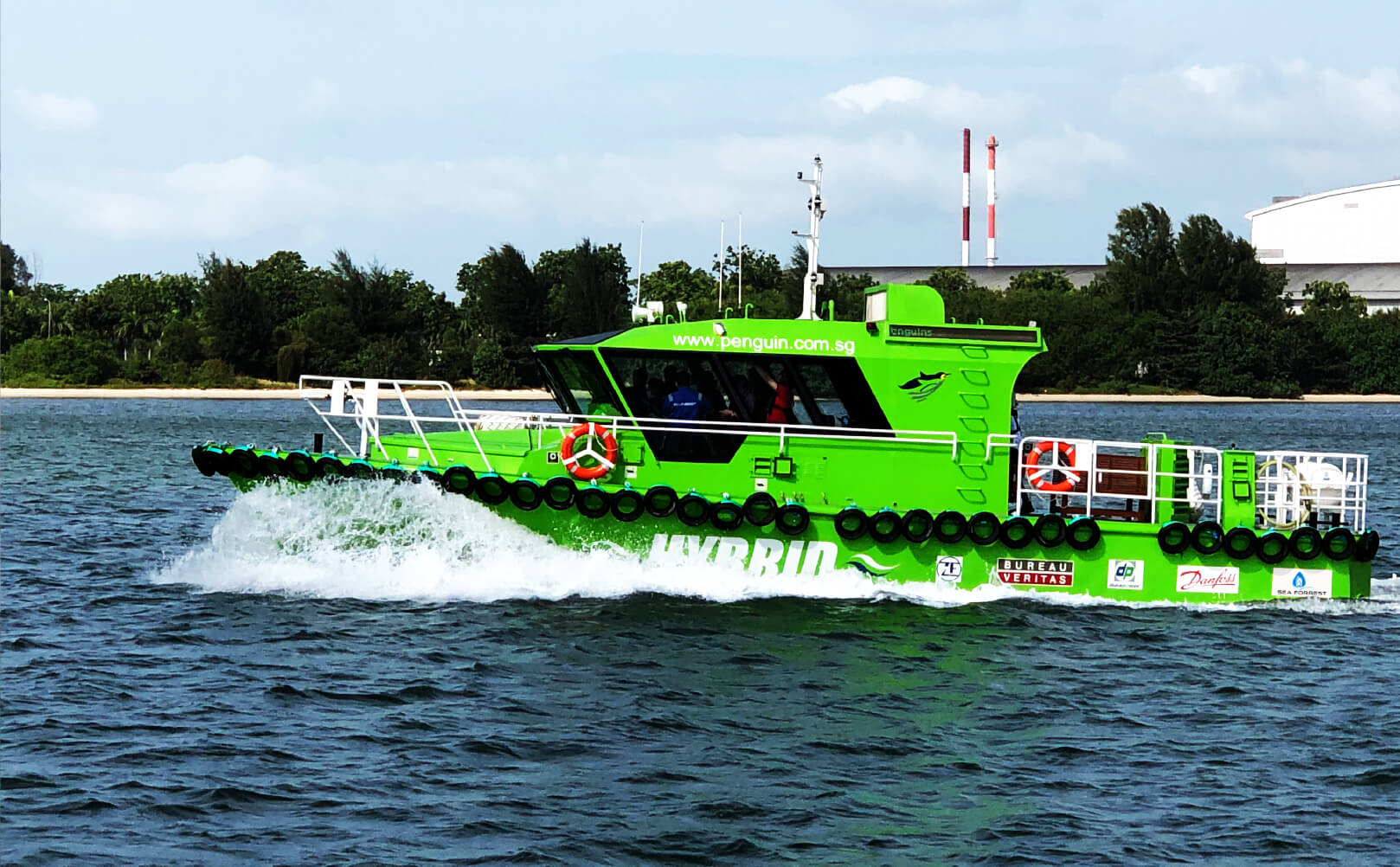

To build a sustainable Maritime Singapore, all domestic harbour craft will >

By 2050:

OPERATE ON FULL ELECTRIC PROPULSION AND NET ZERO FUELS.

REDUCE ABSOLUTE EMISSIONS BY 50% FROM 2030 LEVELS.
Source: Maritime Singapore Decarbonisation Blueprint: Working Towards 2050

Steer your
business towards
sustainability and
other types of
transformation.
More Stories
EMBARKING ON A GREEN
VOYAGE
Penguin International is making waves as a provider of sustainable maritime solutions.
This renowned shipbuilder is betting big on the green wave sweeping over the maritime industry, one that contributes significantly to carbon emissions. The Singapore-listed company’s bold new direction is giving it a critical edge in the transition to a net zero world.

SCROLL
Managing Director James Tham (pictured), a journalist-turned-businessman, reveals that the company is playing the long game in its wholehearted embrace of sustainability. While he says that business will have to endure some short-term pain by going green, this pivot will help Penguin distinguish itself from the competition for the foreseeable future.
Getting on board with ‘baby steps’
The shipbuilder’s first steps on its green journey were prompted by the Singapore Exchange’s updated regulations for listed companies.

SCROLL

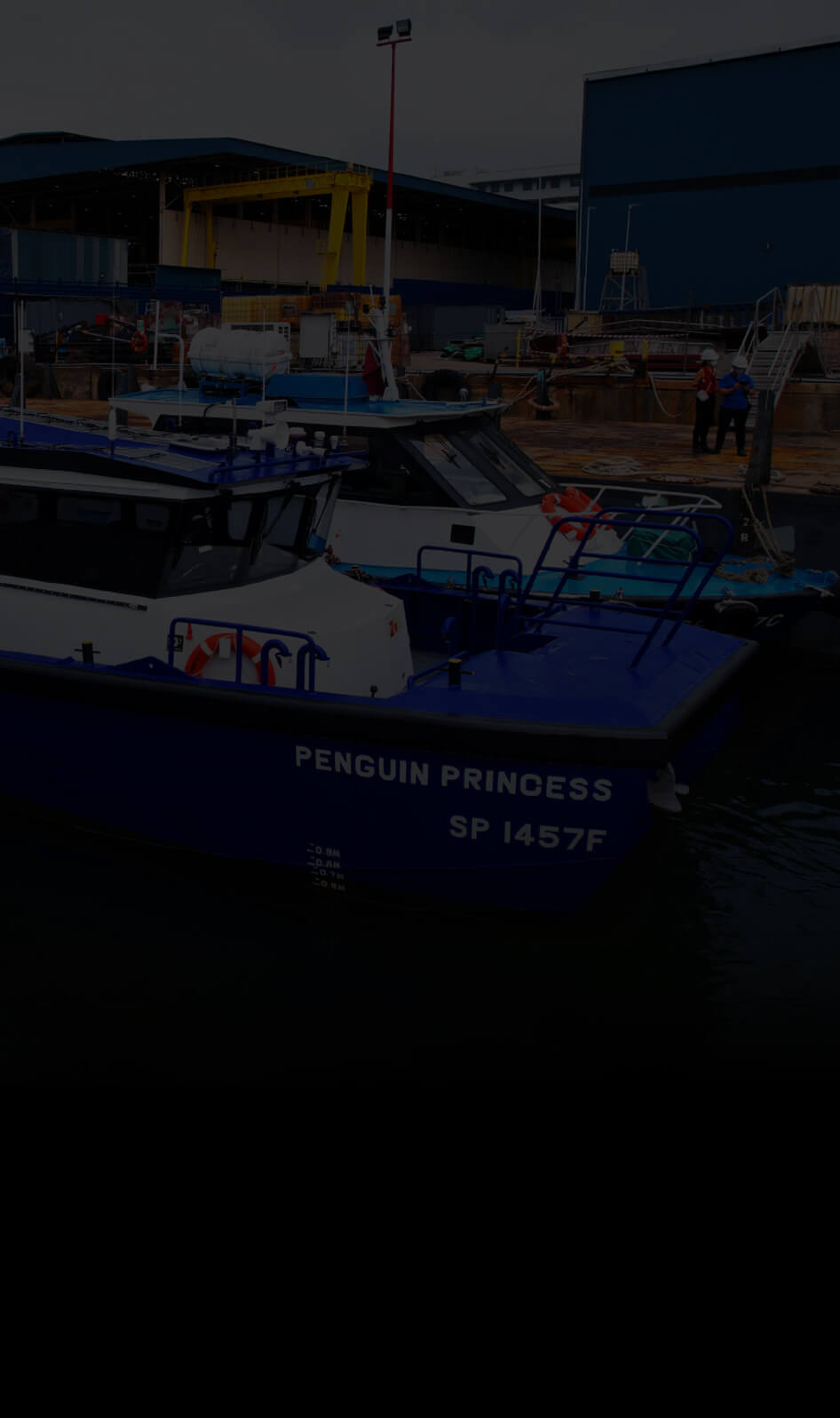
These regulations required the firm to produce a sustainability report in
2017, Mr Tham says, leading to “baby steps” in green technology. A year
later, Penguin retrofitted one of its ferries with solar panels. It later
built Singapore’s first hybrid-electric fast launch. Soon, customers like
Shell and the Maritime and Port Authority of Singapore (MPA) asked to tap
its expertise in building sustainable high-speed vessels.
Since then, Penguin has delivered to MPA Singapore’s first hybrid-electric
patrol boat and is currently building for Shell Singapore’s first pure electric
ferries and rapid shore chargers that it would own and operate.



+1.5 degrees Celsius > The likely global temperature increase by 2100 if urgent action is not taken, leaving Singapore vulnerable:
Source: Centre for Climate Research Singapore






Higher daily mean temperature of 1.4 to 4.6 degrees Celsius

More intense and frequent heavy rainfall events

Mean sea level rise of up to 1 metre
In turn, our water supply, biodiversity and public health could be impacted.
Source: Centre for Climate Research Singapore

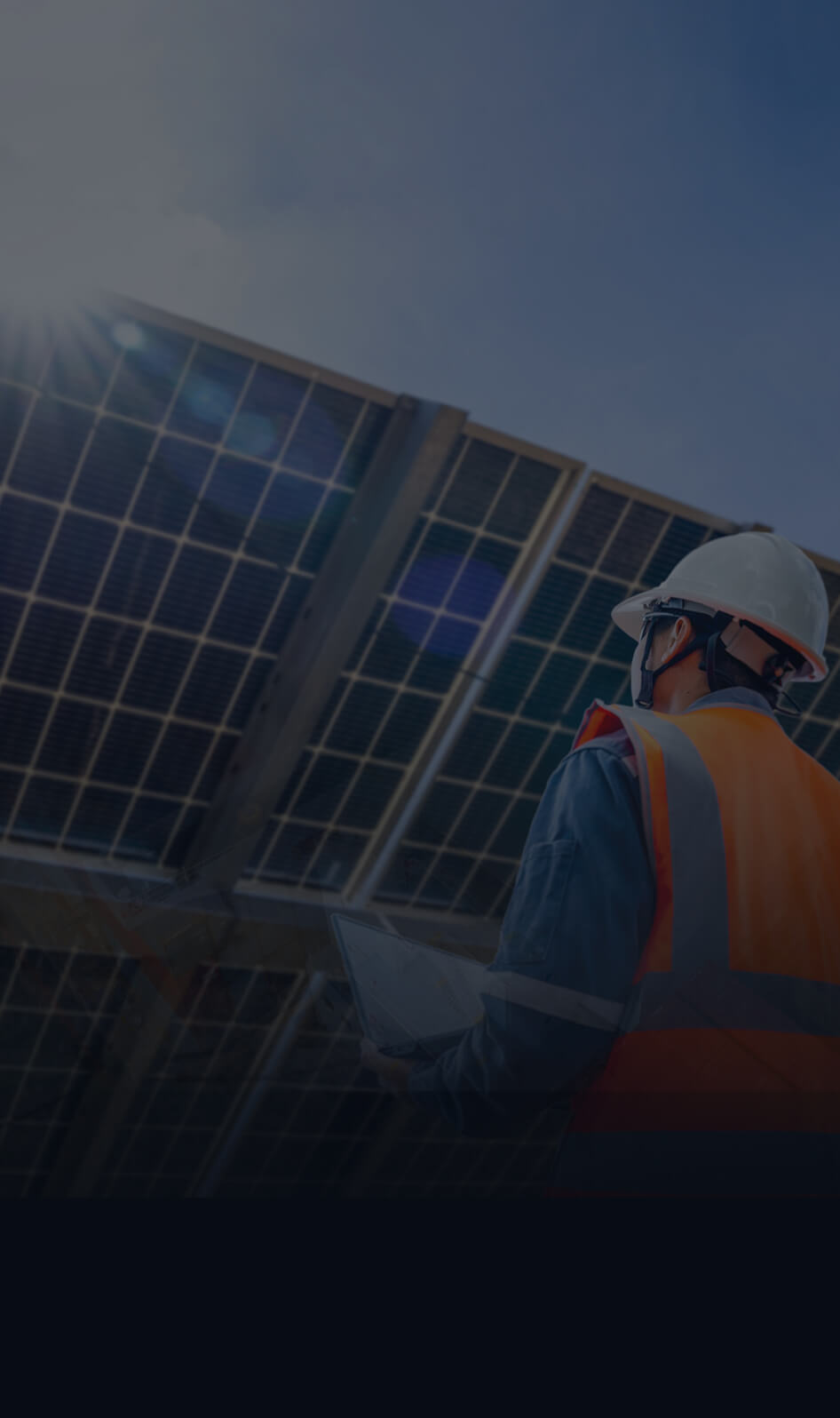

Companies must embrace sustainability to remain competitive. We will support companies as they accelerate their sustainability efforts and capture opportunities in the green economy.
- Tang Zhi Hui
Director (Climate Change & Sustainability), MTI

Venturing into new waters
More ambitious sustainability-related projects lie ahead for the company.

SCROLL


Penguin has signed a Memorandum of Understanding with Sembcorp Marine and Shell to trial the use of hydrogen fuel cells
for ships in Singapore — a potentially zero-emissions technology to help the industry achieve net zero emissions by 2050.
This emissions target signals the country’s
commitment
to the United Nations’ 2030 Agenda for Sustainable Development, the Paris Agreement and the International Maritime
Organization’s Initial Strategy to ensure greener shipping globally. Mr Tham believes the push for a cleaner
industry will drive demand for Penguin’s solutions.

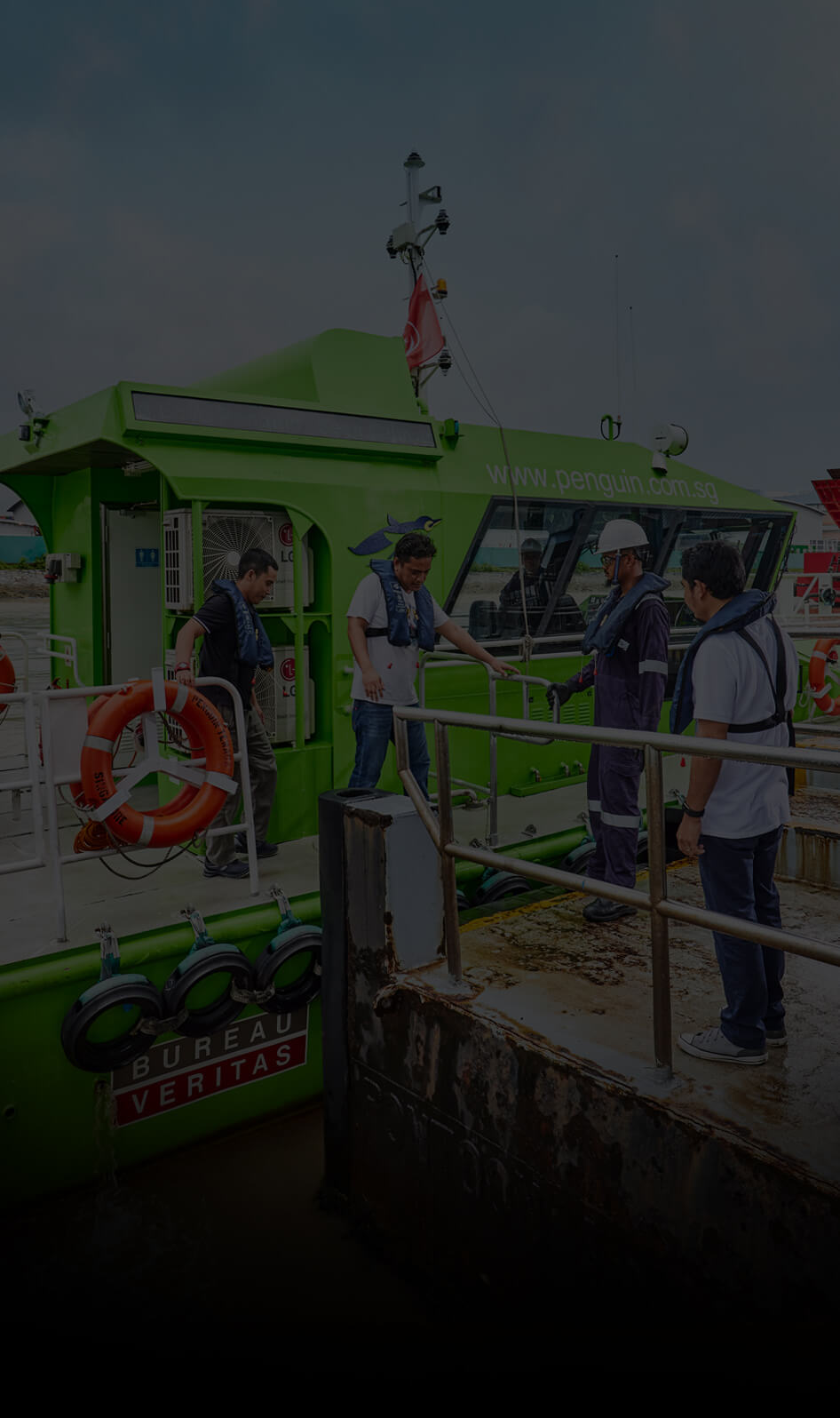
Another key to unlocking the company’s potential is the availability of financing for green maritime projects. It recently
secured a green loan from a local bank — co-guaranteed by Enterprise Singapore — to help finance its green project.
A third driver will be the public’s willingness to accept sustainable solutions that might cost more, he says. “The
public needs to be part of the national conversation where they expect electric ferries as much as they expect electric buses,
essentially saying, ‘we don’t want diesel ferries when we travel’.”

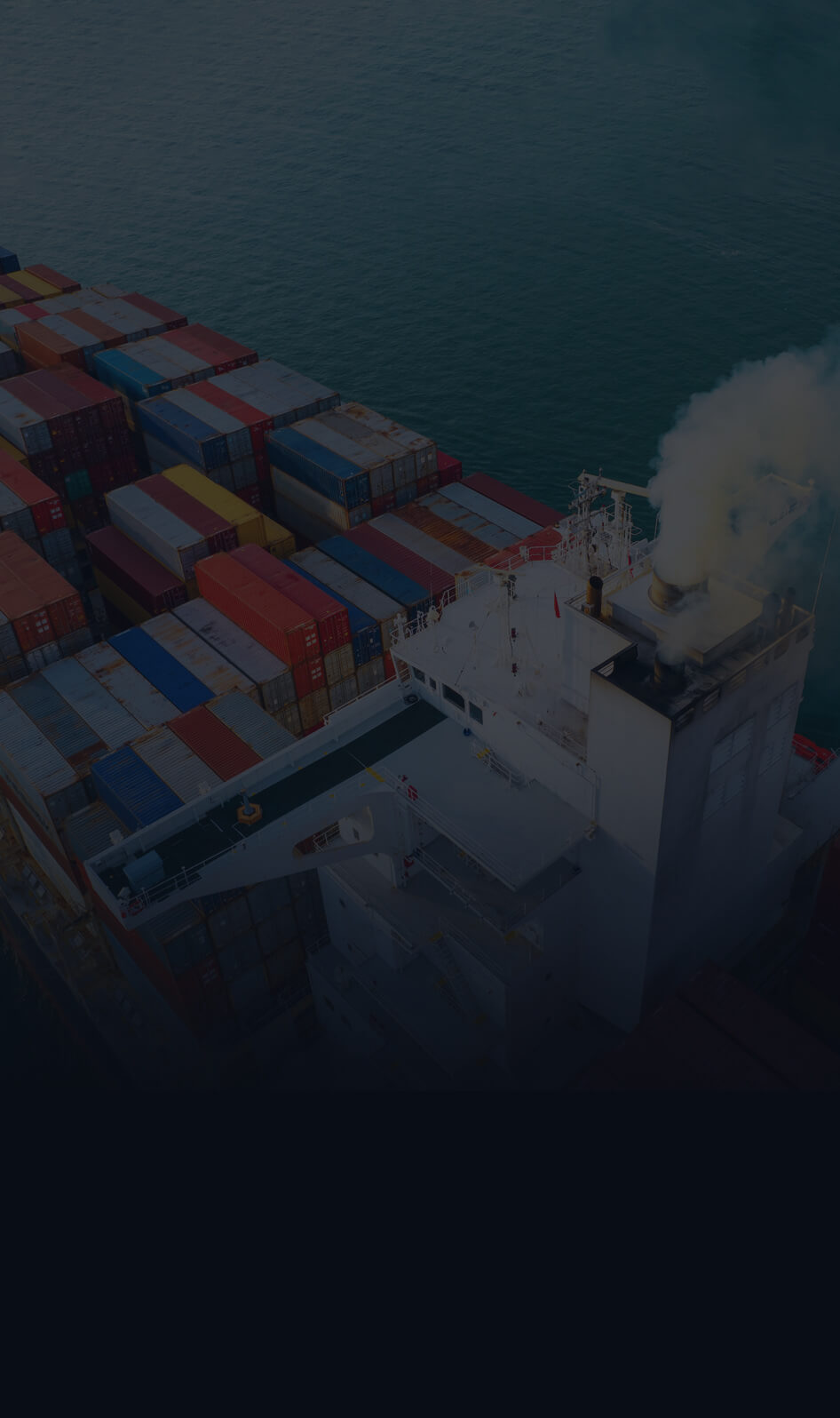

To achieve Singapore’s net zero emissions ambition by 2050, the carbon tax for businesses will be raised from S$5 a tonne to:



S$25
a tonne in 2024 and 2025,

S$45
a tonne in 2026 and 2027, and

S$50–S$80
a tonne by 2030.
Carbon tax-liable businesses can use carbon credits to offset up to 5 per cent of taxable emissions from 2024.
BUILDING SUSTAINABILITY CAPABILITIES
As we transition to a low-carbon future with new green opportunities, local companies can tap on Enterprise Singapore support, such as the Enterprise Sustainability Programme (ESP).
THE ESP COVERS:

-
Sustainability courses
to build awareness and knowledge of sustainability trends, risks and opportunities.

-
Sustainability capability and product development projects
to develop new sustainable products and solutions, or plans to be more sustainable, with support via the Enterprise Development Grant.
BUILDING SUSTAINABILITY CAPABILITIES
As we transition to a low-carbon future with new green opportunities, local companies can tap on Enterprise Singapore support, such as the Enterprise Sustainability Programme (ESP).
THE ESP COVERS:

-
Sectoral initiatives
run in partnership with trade associations and chambers, and include sustainability roadmaps and training courses.

-
Ecosystem initiatives
and sustainability-related services provided by industry partners in areas such as training, certification and financing.
Planning for the new normal
Penguin’s early moves in sustainability put it in a good position to capture a larger share of the market in the future when green vessels become the norm.

SCROLL

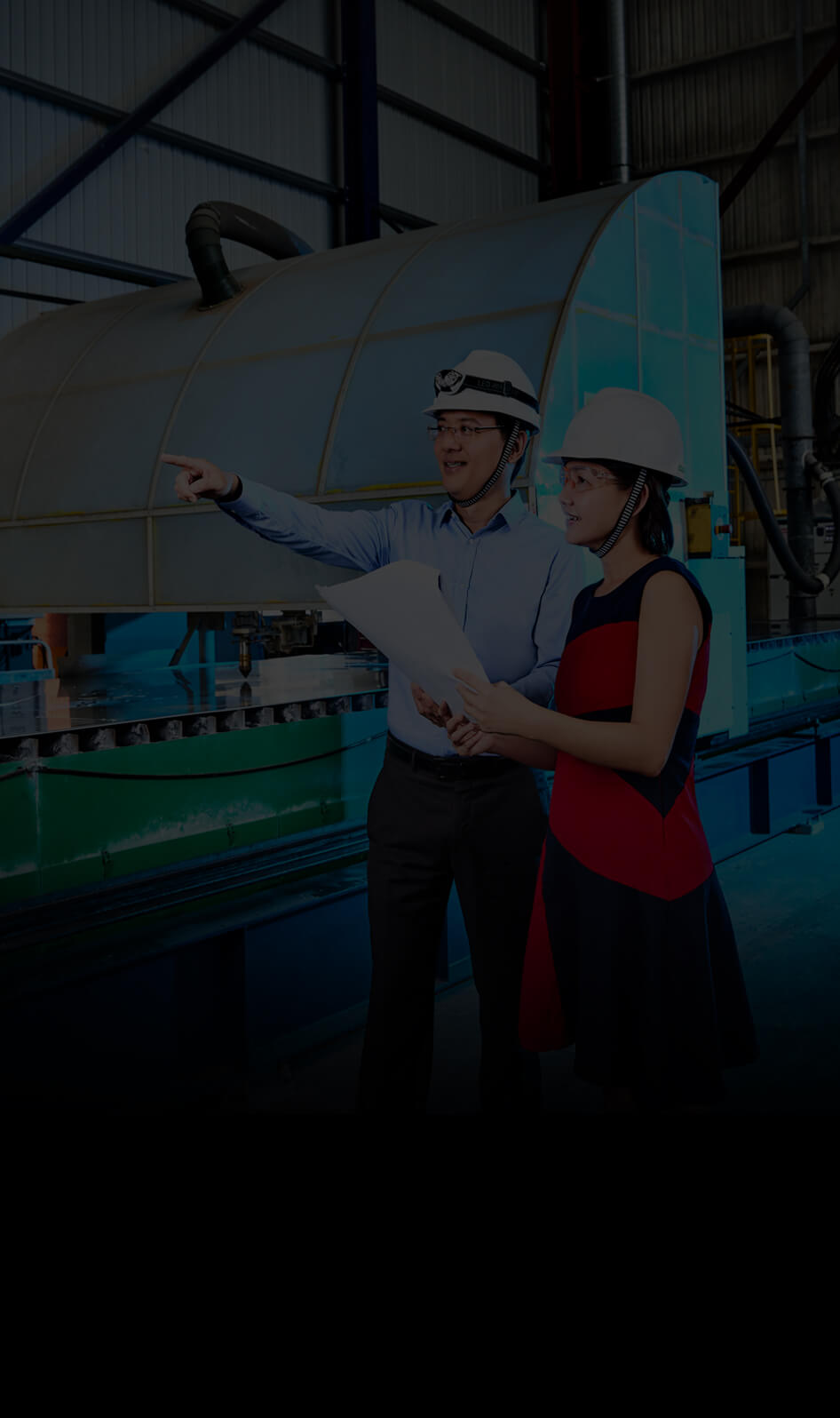
"Going green in the short term is not profitable,
so it has to be part of a bigger strategy. The
benefit we reap by being part of the solution
now is we are seen as a progressive, can-do
company," explains Mr Tham.
Looking ahead, Penguin has started exploring newer green technologies
that can be applied to marine and offshore. These include the use of
methanol as a maritime fuel, and new forms of ship design to make vessels
more energy efficient. "People are embracing a new normal. You do not want
to be left in the cold when the whole industry has moved on," he says.

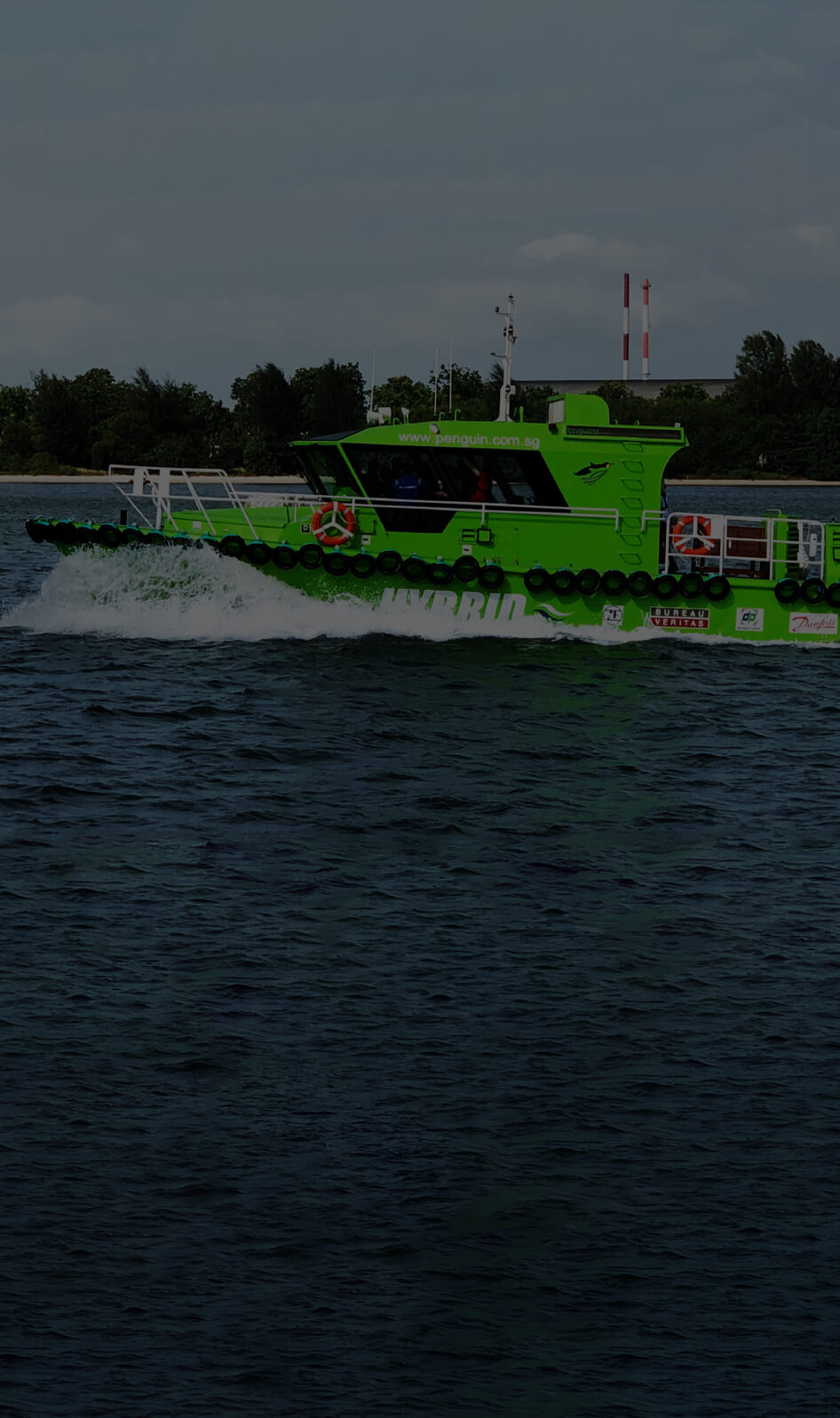

To build a sustainable Maritime Singapore, all domestic harbour craft will >

By 2030:

OPERATE ON LOW-CARBON ENERGY SOLUTIONS.

REDUCE ABSOLUTE EMISSIONS BY 15% FROM 2021 LEVELS.


To build a sustainable Maritime Singapore, all domestic harbour craft will >

By 2050:

OPERATE ON FULL ELECTRIC PROPULSION AND NET ZERO FUELS.

REDUCE ABSOLUTE EMISSIONS BY 50% FROM 2030 LEVELS.
Source: Maritime Singapore Decarbonisation Blueprint: Working Towards 2050
Steer your business towards sustainability and other types of transformation.
FIND OUT MORE











